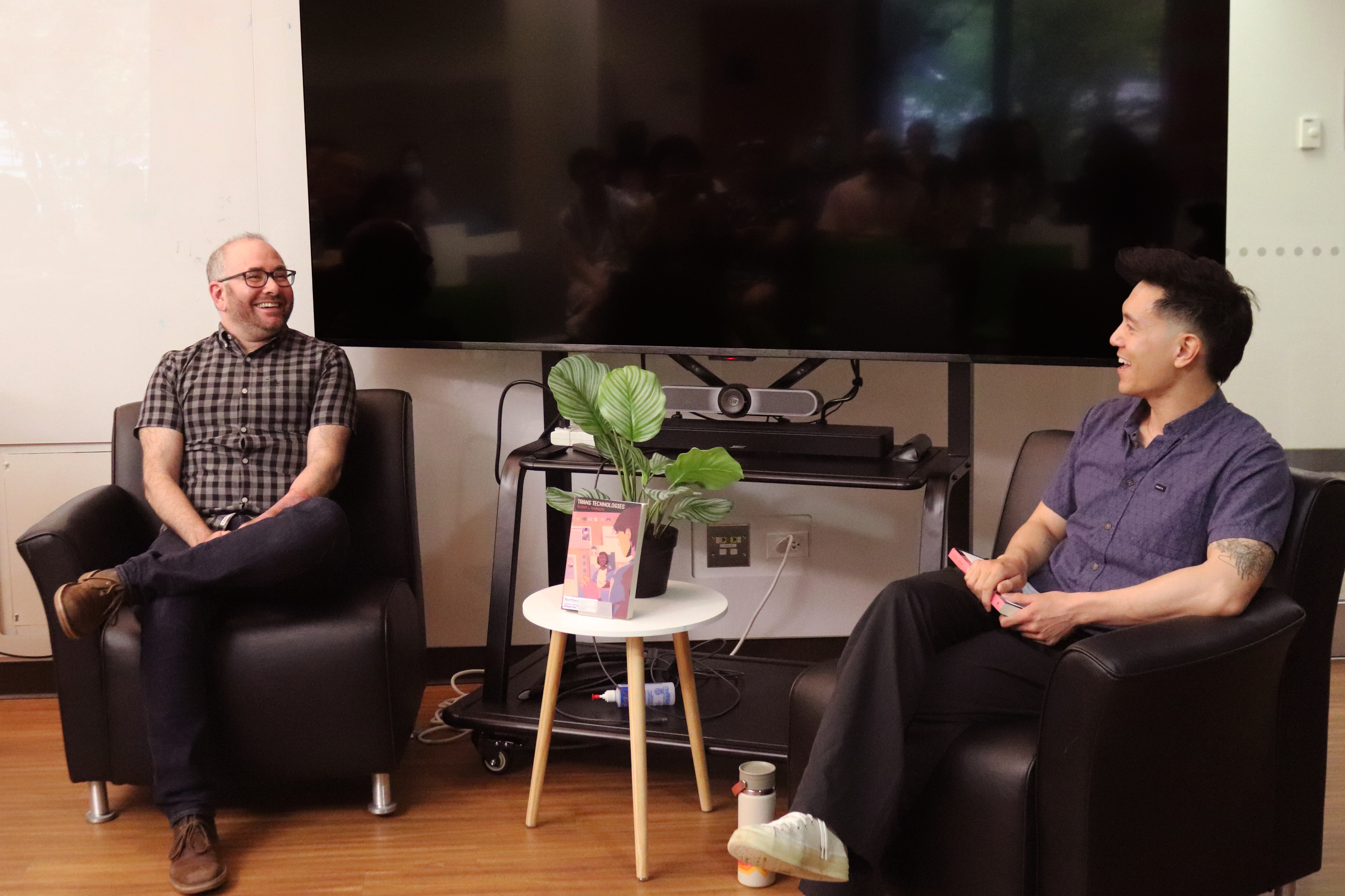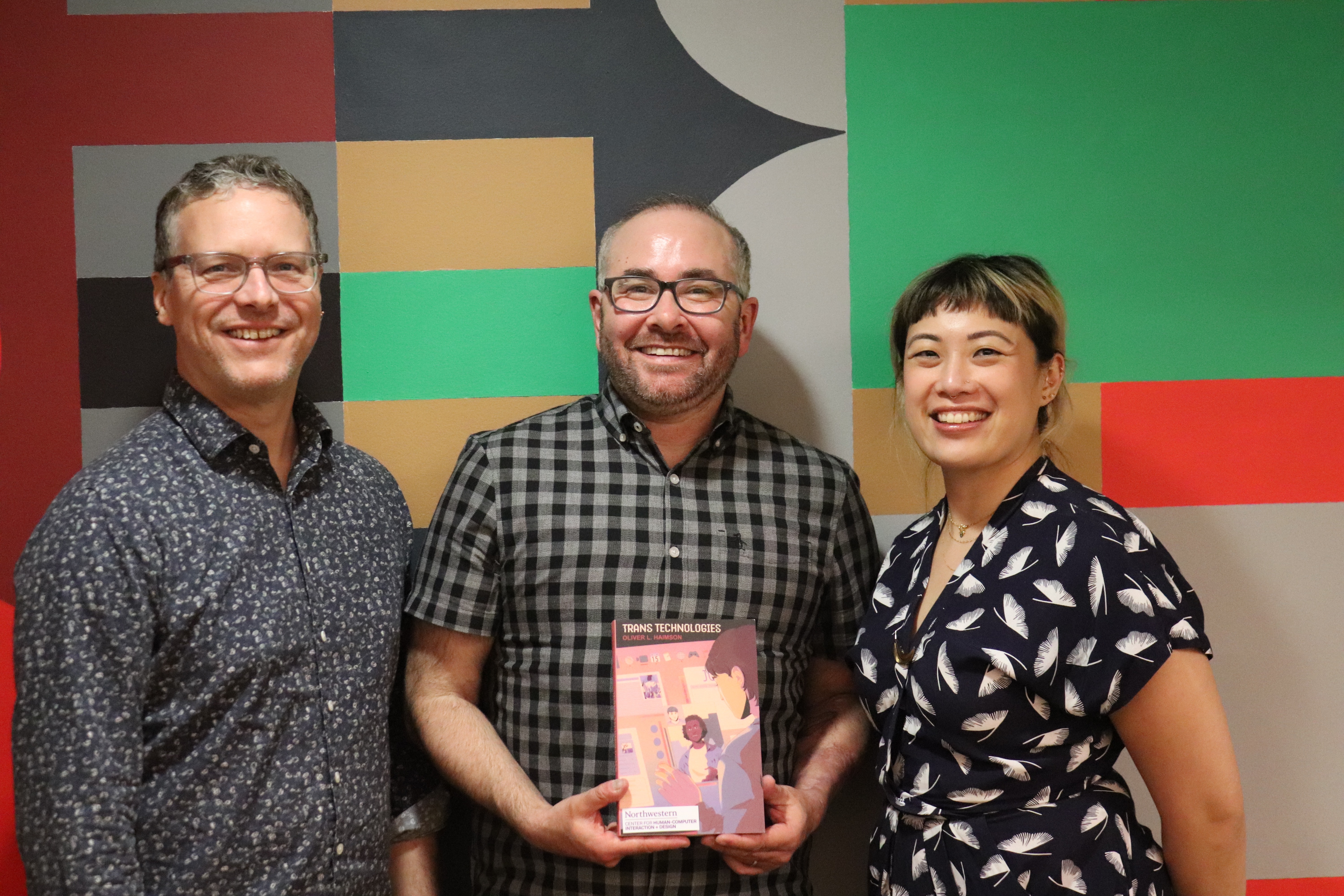Dr. Oliver Haimson's Book Talk on "Trans Technologies"
How can technology create new possibilities for transgender people, and how can trans experiences, in turn, create new possibilities for technology?
 In Dr. Oliver Haimson’s book, “Trans Technologies” he describes what happens when trans people take technology design into their own hands. On Thursday, May 15th, he shared his insights and findings with the Center for Human-Computer Interaction + Design community in a day-long visit to Northwestern connecting with our students and faculty. That evening, Oliver sat down with postdoctoral student and center affiliate Dr. Calvin Liang to discuss the major ideas put forth in his book.
In Dr. Oliver Haimson’s book, “Trans Technologies” he describes what happens when trans people take technology design into their own hands. On Thursday, May 15th, he shared his insights and findings with the Center for Human-Computer Interaction + Design community in a day-long visit to Northwestern connecting with our students and faculty. That evening, Oliver sat down with postdoctoral student and center affiliate Dr. Calvin Liang to discuss the major ideas put forth in his book.
Haimson’s book addresses technology's unique needs and challenges faced by trans communities and individuals. He points out the multiplicity of feelings of online trans communities, citing online game jams circling between themes of rage and joy; two major concepts in relation to the transgender experience in the real world reflected in online spaces. While these emotions seem to stand in contradiction to one another, they reflect the reality of being trans in online spaces that are not designed to be inclusive and safe for their entire population of users. Haimson describes that more often than not, HCI is based on practicality and major platforms like Meta and X don’t prioritize the safety of their users. As profit-driven platforms, their stances on inclusivity can change on “the whim of government opinions”. Their main goal is not to host a space designed to protect all users, it’s to increase revenue.
This corporate-driven mentality creates an opportunity for online spaces operated by individuals seeking to create trans-inclusive communities. Resource constraints like time and finances are a major issue in developing and maintaining trans technologies. But these constraints on individually-maintained platforms come with a bright side; they aren’t relying on external revenue to function. Essentially, there’s no strings attached to their ability to function. Without these strings, creators and maintainers can develop and design these technologies how they see fit. Oftentimes, these online spaces become focused on empowering trans people to create their own tools for navigating the world.
Haimson discussed his hopes for the future of trans technologies to expand into online communities focused on the needs of others over the needs of the self.
Thank you to Oliver Haimson for taking the time to speak with the HCI+D Northwestern community. You can find a free version of “Trans Technologies” on MIT Press. This talk was organized and sponsored by The Center for Human-Computer Interaction + Design and the Northwestern Institute for Sexual and Gender Minority Health and Wellbeing.

